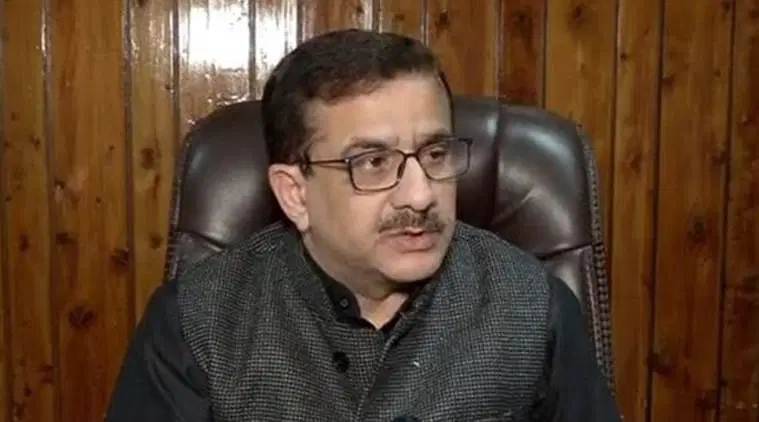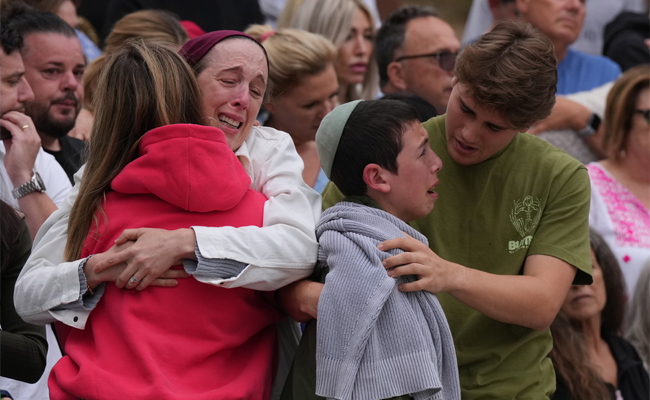New Delhi: Waseem Rizvi, the former Chief of Shia Waqf Board of Uttar Pradesh who earlier last year converted to Hinduism has released a video adding that the Hindu society has not accepted him with love that he deserved after his “ghar vapasi”.
In the video that is now being shared on Twitter, Rizvi, who changed his name to Jitendra Tyagi after conversion to Hinduism can be seen expressing his pain of not being accepted into Hindu society with the love that he deserved.
He further adds that he is overwhelmed with depression and might want to end his life himself instead of being killed by his enemies.
In the video, he also said that his decision to convert to Hinduism was a mindful decision and he doesn’t regret his “ghar vapasi” but is instead disappointed with how he was treated in the Hindu society after he converted from Islam.
“I was treated like a distant relative who returns home after several years. The way the family members who live together do not mix up with their distant relative who has returned after several years, even I was not accepted by the Hindu society.” He said in the video.
"I am opening up today because I don't know what will happen to me and I am overwhelmed by the depression," he added.
Let the Truth be known. If you read VB and like VB, please be a VB Supporter and Help us deliver the Truth to one and all.
Satna/Bhopal (PTI): Four children suffering from thalassemia have tested HIV positive at Satna District Hospital in Madhya Pradesh allegedly due to contaminated blood transfusions, officials said on Tuesday.
The case is four months old and an investigation is underway into it, an official said.
Officials suspect the use of contaminated needles or blood transfusions for the spread of infection to the children.
ALSO READ: 3 Indian students among those injured in Australia’s Bondi Beach attack
MP Health Minister Rajendra Shukla told reporters in Bhopal that he has ordered a probe into the matter and sought a report.
“It is also being investigated whether the blood transfusion took place in other hospitals also or only in the government hospital,” he said.
The affected children, aged between 12 and 15 years, received blood transfusions from the hospital's blood bank, as per an official.
Devendra Patel, in-charge of the blood bank at Sardar Vallabhbhai Patel District Hospital in Satna, said four children have tested HIV positive and an investigation is underway to determine how they got infected.
"Either an infected needle was used or a blood transfusion occurred. These are the two main reasons I believe. Blood transfusion seems to be the most likely cause," he told PTI Videos.
All these children suffer from thalassemia, and some have received 80 or 100 blood transfusions, he said.
A family member of one of the affected children said that their child was found to be HIV positive during a routine checkup about four months back, and he has been receiving medication, but it had proven to be of no use.
After taking the medication for HIV, the child starts vomiting, feels low and becomes ill, he said.
After the four children were detected with HIV infection, their family members were also tested and the results came out negative, he added.
The Opposition Congress targeted the government over the matter and demanded the resignation of Health Minister Shukla.
Speaking to reporters in Bhopal, Congress MLA and former minister Sachin Yadav claimed such incidents were continuously occurring in Madhya Pradesh.
Earlier, a case of toxic cough syrup came to light in Chhindwara, followed by incidents of rat bites at hospitals in Indore and Satna, and now children have been given HIV-infected blood, he said.
"The health minister is unable to manage the department. He should resign. A murder case should be filed against those responsible for the Satna incident," Yadav said.
Senior Congress leader Sajjan Singh Verma termed it a failure of the government. Chief Minister Mohan Yadav's government has no connection with ground realities, he charged.
"Somewhere rats are roaming in hospitals, somewhere children are being given HIV-infected blood. Instead of preventing HIV, you are spreading it. Mohan Yadav should wake up from his slumber. Children are the nation's heritage and should be taken care of," he added.





